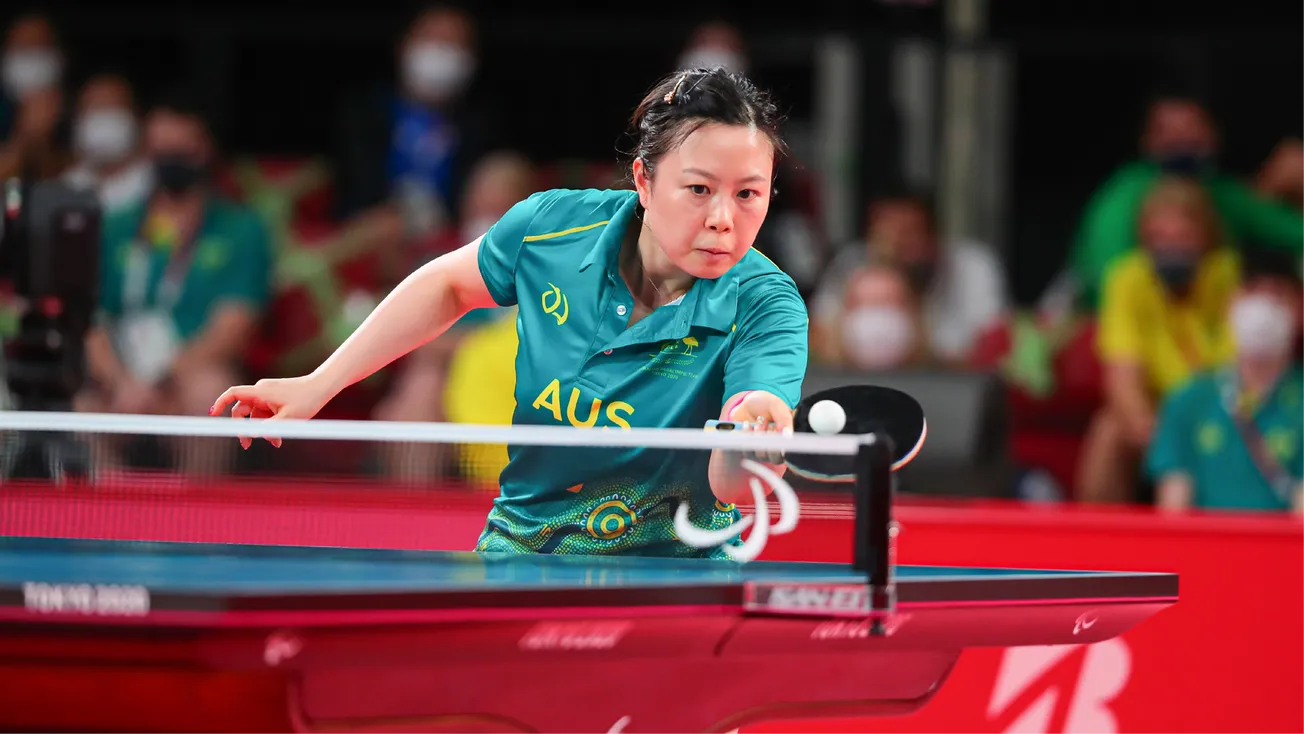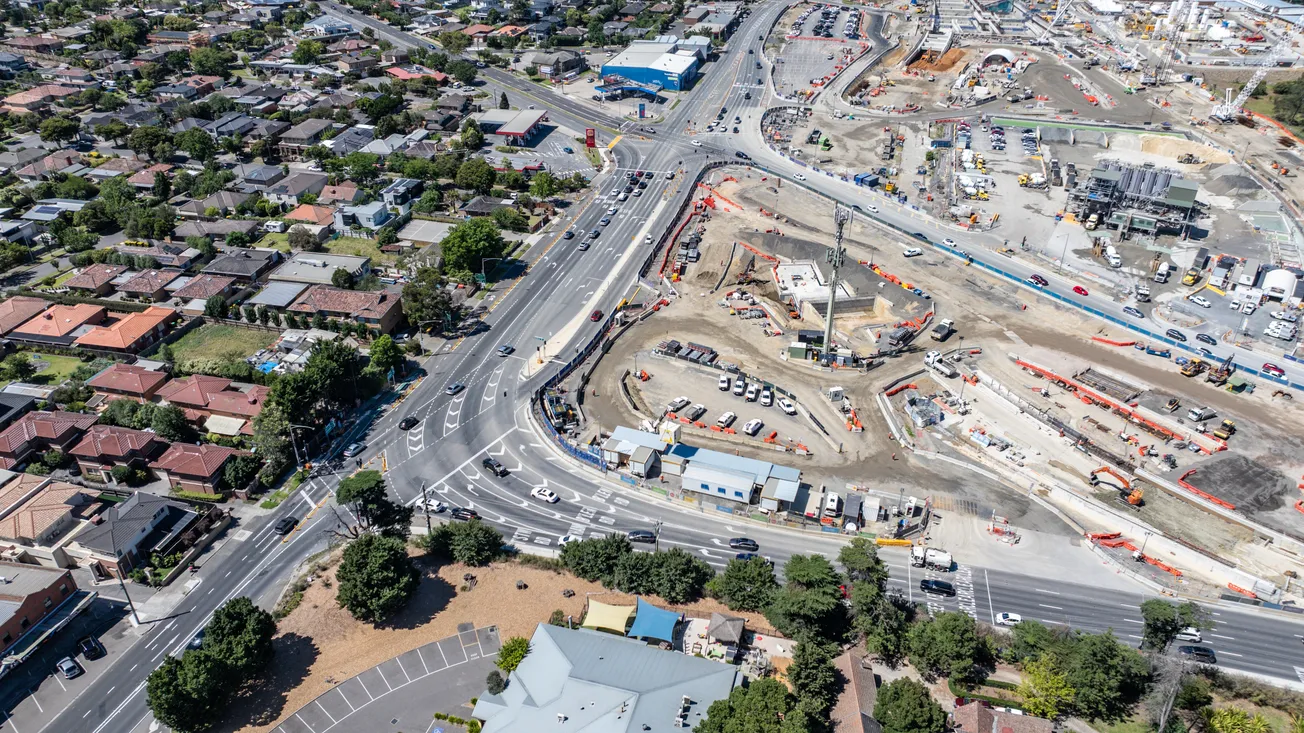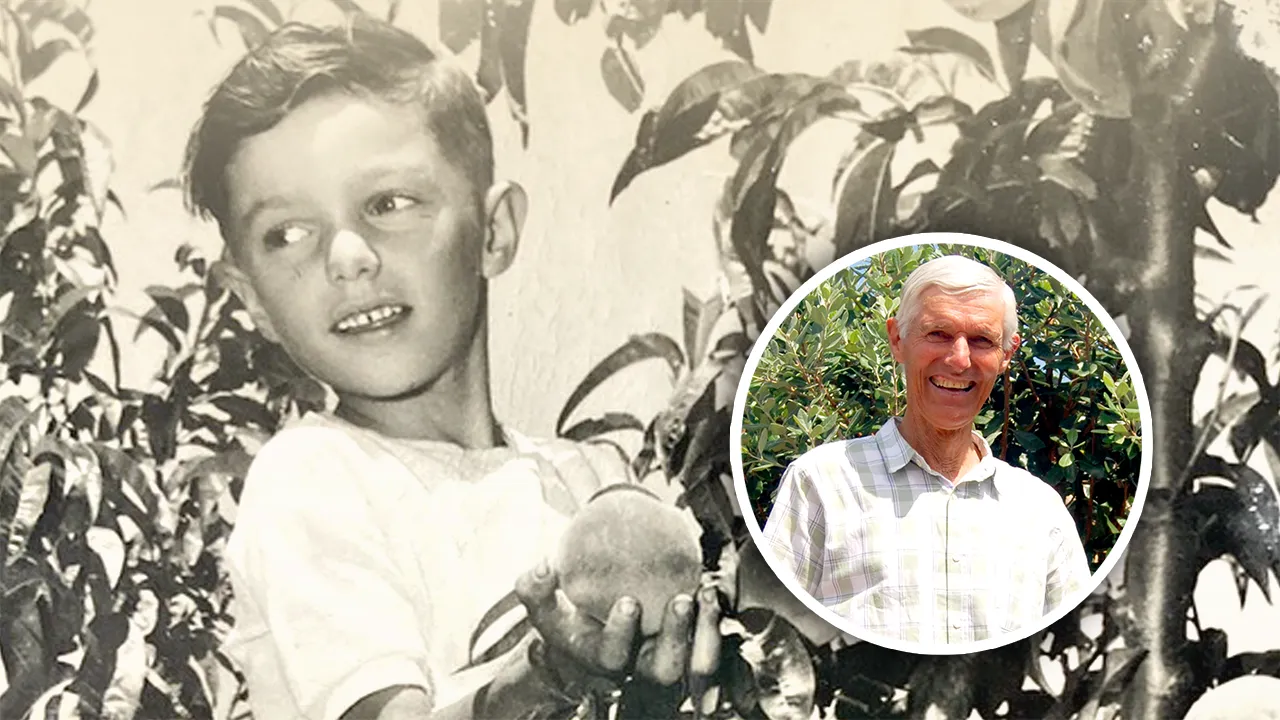Table of Contents
By Eva Zhang, Sherry Sheng & Elaine Miao
Among the many trailblazers in sports, table tennis player and proud Manningham resident Lei Lina stands out as a shining star. Lina has achieved remarkable success, winning ten medals across five Paralympic Games, including six golds and four silvers. Born with a ten-centimetre difference between her right and left legs, Lina overcame many challenges to become a successful and inspiring athlete. As Lina prepares to compete in her 6th Paralympics in Paris next month, we are thrilled to have had the opportunity to chat with her. Below are some of our questions and her answers:
Q: You started playing table tennis at seven years old. Who or what inspired you to choose this as your career?
A: My father was a table tennis fanatic. He wanted to train me when I was four years old, but I wasn’t interested at the time. When I turned seven, my interest in table tennis blossomed, and I began practising with my father. By eleven, I joined the Jiangsu province team. I trained and competed in various places before moving to Melbourne in 2017.
Q: As you prepare for the 2024 Summer Paralympics in Paris, can you tell us a bit about your training?
A: Currently, I have two or three table tennis sessions and two or three gym sessions each week. The training intensity is high to ensure I stay in peak condition for the competition.
Q: How do you balance your training, competition, and personal life?
A: Balancing everything is quite challenging. I train four or five times a week while also preparing for my future education. Proper time management is crucial to balance my studies and training, with my primary focus being the Paralympics.
Q: What has been the most challenging moment in your sporting career, and how do you overcome disappointments?
A: My career has been relatively smooth with few setbacks. The biggest challenge is adjusting mentally after a loss. It can be disappointing, and regaining confidence takes time.
Q: How did you feel when you were selected for your first Paralympic Games in 2003?
A: I was quite young and didn’t have many specific ideas at the time. My first Paralympic participation was in Athens in 2004. Despite my technical skills, I lost because I couldn’t adjust mentally. That setback was a significant challenge.
Q: How did you manage to overcome that setback?
A: It took a while to regain my confidence. After one or two losses, I started questioning my ability to continue. With time, I adjusted and eventually regained my confidence.
Q: Besides time, what helped you overcome these setbacks?
A: Encouragement from others, especially family, coaches, and teammates, was crucial. Their support and guidance gave me the strength to keep going.
Q: Your father mentored you a lot when you were young. What was he like?
A: He was strict, especially about table tennis training. He wanted me to take it seriously and not waste time. However, he didn’t pressure me about winning or losing. His sternness helped me progress technically.
Q: What is your proudest achievement so far?
A: The 2008 Beijing Paralympics was my proudest moment. Winning the singles gold medal and achieving my childhood goal was a significant milestone in my career.
Q: What is the biggest difference between China and Australia in developing disabled athletes?
A: There isn’t a huge difference. Athletes everywhere strive for their dreams. In China, there’s comprehensive state support, allowing athletes to focus on training without other worries. In Australia, athletes rely more on self-discipline and manage their own schedules and training.
Q: Why did you choose to settle in Manningham?
A: Manningham is an ideal place to live. A friend lived here, and when I visited, I was drawn to the beautiful scenery and friendly community.
Q: How do you balance different cultural backgrounds and adapt to Australia?
A: Australia is very inclusive, and I’ve adapted well. The community has many Chinese supermarkets and restaurants, making me feel at home. Embracing both my cultural identity and new experiences has been key to adapting.
Q: What’s your favourite part of Melbourne?
A: Melbourne is a very liveable city, with a focus on health and quality of life. People enjoy outdoor activities, balancing work and leisure. The multiculturalism and diverse food scene are fantastic. The natural environment, with parks, beaches, and nature reserves, is perfect for outdoor sports.
Q: What events will you compete in at the Paris Paralympics?
A: I will compete in Class 9, Mixed Doubles, and Doubles.
Q: What is your role in your team?
A: I am the captain.
Q: How do you help your teammates cope with pressure?
A: We have specialised psychology courses and workshops. I act as a bridge between the coach and the players, conveying ideas and strategies.
Q: How would you like to give back to the community?
A: I’d love to teach table tennis and give back to the community. It’s a great sport for all ages, especially for the middle-aged and elderly, promoting fitness and health.
We wish Lei Lina and her team the very best of luck and eagerly look forward to cheering them on during their matches!









